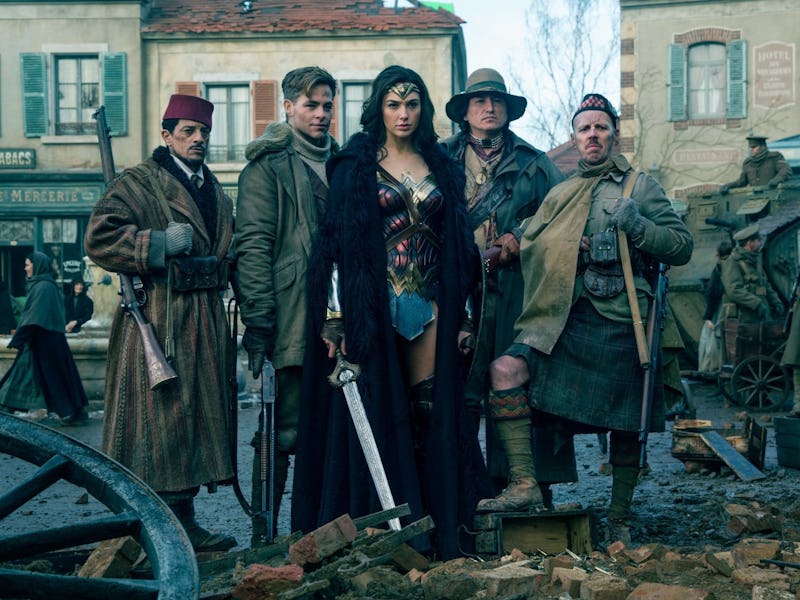In the final trailer for Wonder Woman, Diana of Themyscira makes an announcement: She has to leave home. Diana believes that if she leaves her island, she can help bring an early end to World War I, a noble decision that her mother, Queen Hippolyta, doesn’t completely support. “If you choose to leave, you may never return,” Hippolyta cautions.
Diana responds: “Who will I be if I stay?”
This scenario will be familiar to anyone who’s ever questioned whether or not it was time to leave home. For Diana, the option to suddenly leave home presents an opportunity to become the person she was always meant to be: Wonder Woman. And that’s not just a cheesy hot take — it’s actually a common pattern that’s been uncovered through extensive psychological research.
In 2012, University of Cambridge psychologist Jason Rentfrow, Ph.D., wrote in American Psychologist that existing migration patterns, ecology, and society’s influence can all factor into where a person ends up living. Sometimes all of these elements come into play, and sometimes only one does. This variation results in regions that have specific “temperaments”, he wrote, and the culture of these places attracts people of a similar nature. A 2017 article in New York Magazine summed up the findings: “Where you move may be a better reflection of who you already are than of who you will become.”
A young Diana on the island Themyscira.
In light of this research, Diana’s decision to leave home is consistent with who she is and the person she wants to be. Other research suggests that where she ends up is also a function of her personality: In a 2008 psychology study, researchers at the University of Helsinki showed that highly active and social people are more likely to move to urban locations, while highly emotional people are the most likely to move overall. These findings give psychological support to the film version of Diana’s origin, in which she leaves paradise to act as a savior figure in WWI (in some of the comics, Diana’s storyline follows an “I want more than this provincial life” narrative). This is in line with the study’s findings that personality makes a big difference in where people end up; in this case, Diana’s personality led her to want to take up the role of savior in the first place.
“She has so many strengths and powers, but at the end of the day she’s a woman with a lot of emotional intelligence,” Gal Godot, who plays Wonder Woman in the upcoming film, told Glamour in 2016. “She’s loving.”
Of course, what separates Diana’s story from the psychological outcomes predicted by our scientific studies is the fact that she is superhuman. If she was a human, then those studies could offer up some serious spoilers to her character development. For example, the very idea of social contagion — the subconscious adoption of the practices and values of people around you — would predict that Diana will become world-weary and violent after too much time spent in the world of men. Moving from mystical Themyscria to London to the trenches of World War I represents a huge change of environment for someone who has never left home.
How much will Diana change? If the movie sticks to the comics (at least, the majority of them), she’ll still retain her love for diplomacy and peace, despite all the drastic environmental changes she’ll experience. All will be revealed when Wonder Woman is released on June 2.
See also: How Hometown Heroes Become Villains
